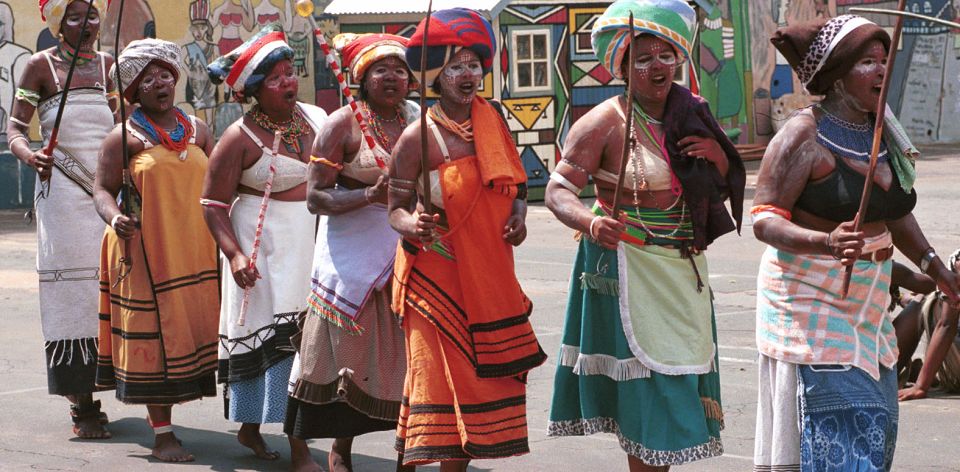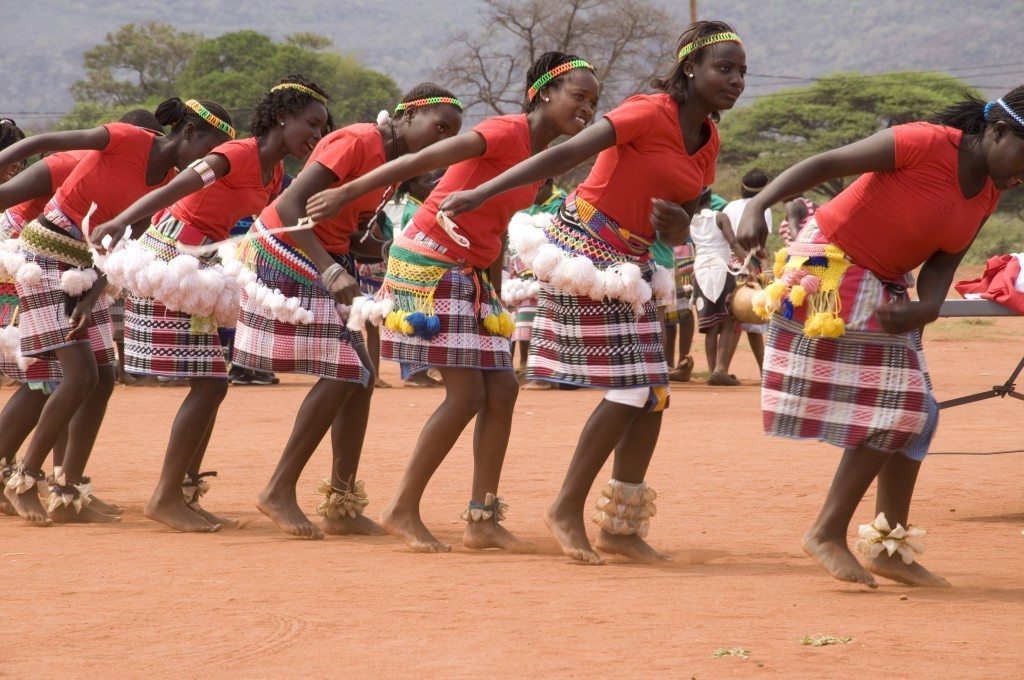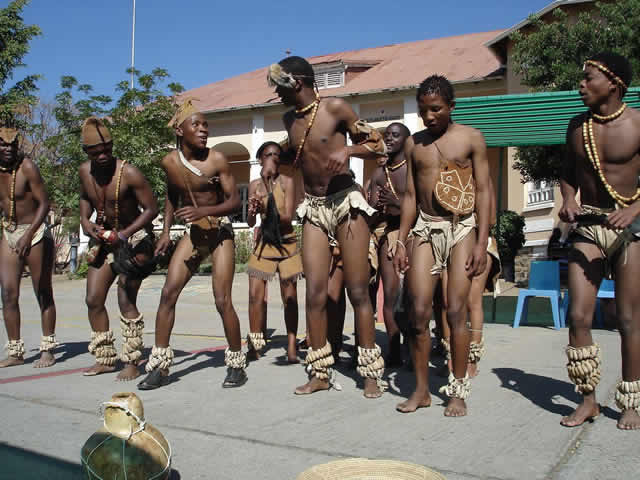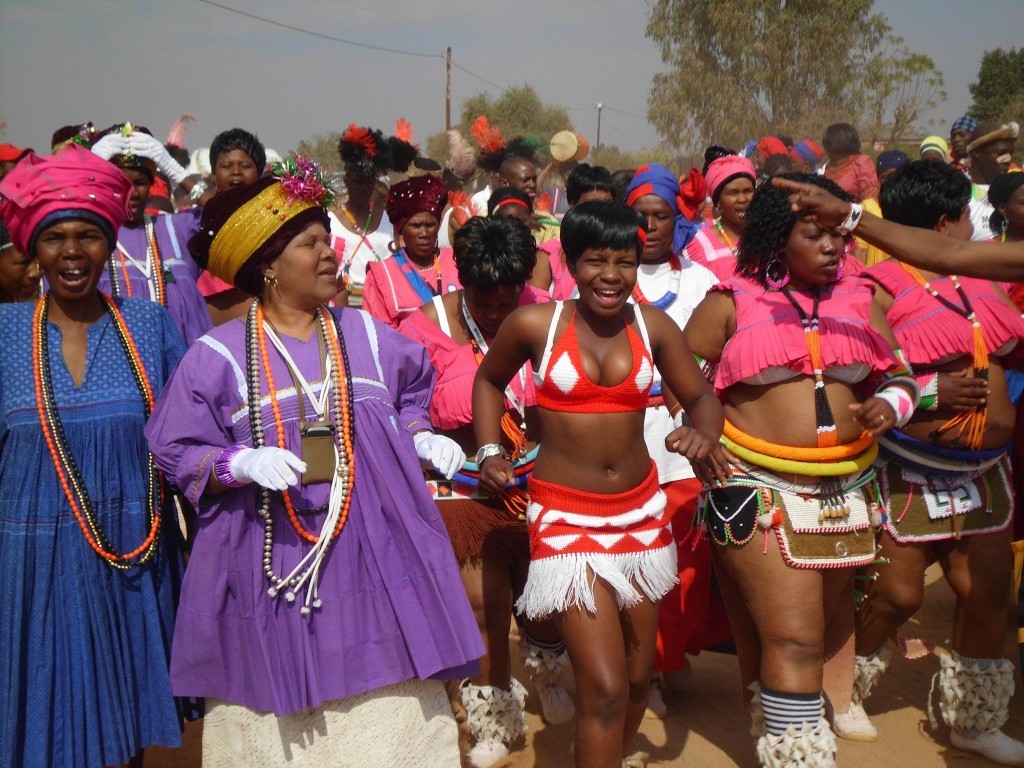South Africa embodies a rich collection of ethnic backgrounds. During the apartheid regime in the country, all these tribes seemed to have folded together with a singular aim of defeating the monster at sight and achieving a free country for all tribes. With the country now free, the different ethnic groups have not lost their identities. Perhaps you may ask yourself what the biggest South African tribes are, the differences between them, how they live, the kinds of traditions and rituals they have, and whether they have got any chiefs.
How Much Do You Know About All These South African Tribes?
Zulus
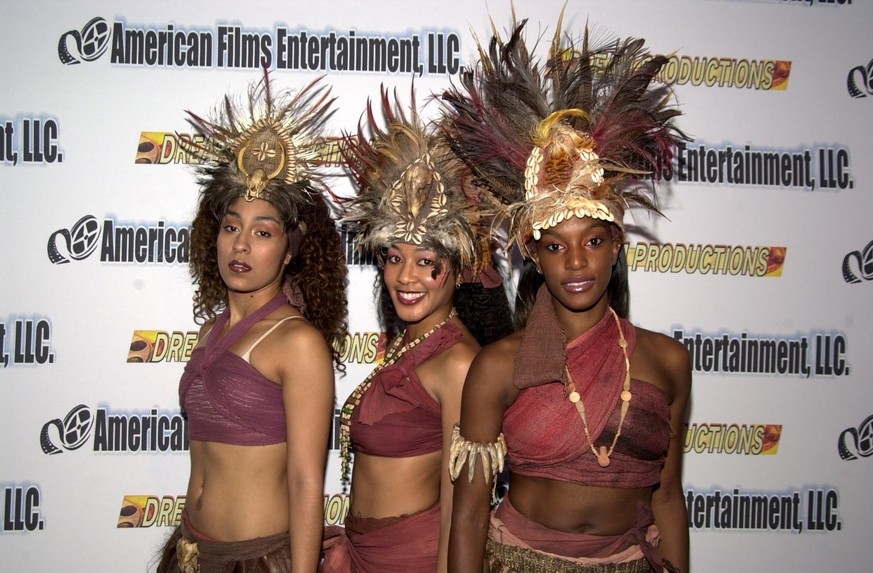
- Population: 10,659,309 to 12,559,000 (2001 census)
- Language Spoken: Zulu
- Religion: Christianity, Zulu religion
- Person: umZulu
- People: amaZulu
It is the best known African tribal group and one of the top tribes of South Africa. Zulu legend traces their origin to patriarch Zulu, the child of a Nguni chief who lived in the Congo basin. They began to migrate south, in the 16th century, where they eventually settled. Their king, Shaka, formed a great kingdom and organised his nation in a very hard and military way. He also made a large army and armed them with shields and assegais. These were to help them prevent the Dutch and British from taking over. However, Shaka later died and the Zulus were overtaken and forced to work in the white peoples’ mines. Presently, they live in kraals in a province known as KwaZulu-Natal. They have a hierarchy of local and clan’s chiefs and are also fond of storytelling and singing.
Xhosa
- Population: 8.2 million (2020 March 08)
- Language Spoken: Xhosa
- Religion: Christianity and Traditional religion
- Person: umXhosa
- People: amaXhosa
The Xhosa tribe often live in ‘homelands’ based in Ciskei and Transkei. This tribe came wandering from the north few hundred years ago. They love keeping animals and have a strong tradition of story-telling. However, something bad happened to them during the white invasion where the whites took over their lands and began living on them. The Xhosa were even subjected to work on their lands as slaves. This brought about many conflicts until when the white rule finally ended and the people regained their lands.
Venda people
- Population: 900,000
- Language Spoken: Venda
- Religion: Christianity, Traditional African religion
- Person: MuVenda
- People: VhaVenda
Just like many other tribes in South Africa, the Venda hailed from the north. They then settled down in Soutpansberg Mountains where they first built their capital known as D’zata. They occupied the largest area that was rich in vegetation and mountains influencing more people to speak their language. The Vendas perform some rituals, which are still kept a secret to other people and they have some mystic legends too. They have a special relationship with crocodiles since they live in an area where many crocodiles exist.
Tswana
- Population: 4.1 million (South Africa)
- Language Spoken: Setswana
- Religion: Christianity and Tswana indigenous religion
- Person: Motswana
- People: Batswana
The Tswanas came into South Africa during the 14th century. They speak a language known as Sechuana, which is a Bantu language. However, in the year 1820, the Tswanas were driven away by the Matabele people whereby they became ruled by Britons and the Boers. Up to this time, the Tswanas have been residing in great villages called kraals. These villages have a hierarchy ruling where all local chiefs gather under their coordinating king who rules them. The Tswana are peace-loving people and they consider the rain as an important being to them.
Hottentots (Khoekhoe)
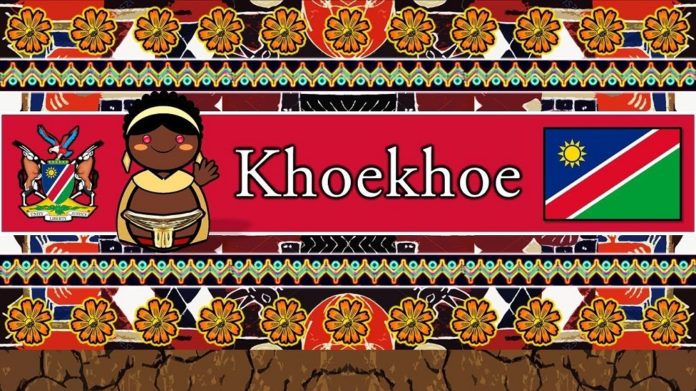
- Population: 200,000
- Language Spoken: Khoekhoe
- Religion: Christianity and African Traditional Religion
- Person: Khoekhoen
- People: Khoekhoegowab
The Hottentots are much like the Bushmen. They nearly have the same culture, language, and look. Hottentots mostly call themselves ‘Khoi’ and Bushmen call themselves ‘San’. When they mix up, they are referred to as the ‘Khoisan’ or ‘Khoikhoi’ people, mostly because of their clicking sounds too. They also have much in common with other tribes in East Africa, for instance, wanderers and herders. They are not a big community, hence, they have been mixed up with other people in South Africa. Some of them have also migrated to live in Namibia where they find exciting and comfortable.
Sotho
- Population: 5.6 million
- Language Spoken: Sesotho
- Religion: Traditional Sotho religion and Christianity
- Person: Mosotho
- People: Basotho
Yet another among South African tribes is Sotho. These people came wandering from the north and later spread over central South Africa. Basotho nation was then formed by King Moshoeshoe in the 18th century, which up to this day, they remain united. Their language is related to Setswana and Sepedi.
South Africa is distinguished by the Rainbow Land. How factual is that? This country is not only a culturally colourful realm, but it is also multiracial with different groups of people who add to what is exclusively South Africa. All the above tribes are evidences of this. They have beautiful traditions that not only differ but make the country admirable. The tribes are many with the biggest group being the Zulus. Being familiar with South African tribes makes it easy to master the history of the country and appreciate its diversity.
Southern African Ndebele
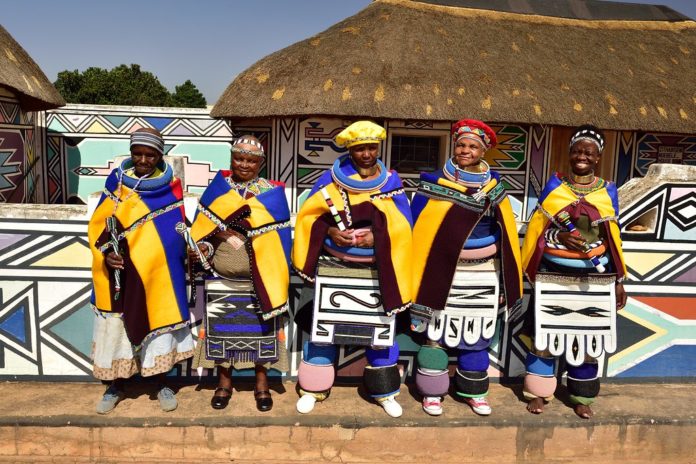
- Population: 700,000
- Language Spoken: isiNdebele
- Religion: Christianity and Traditional African religion
- Person: UmNdebele
- People: amaNdebele
Historically referred to as the Matebele tribe, the Ndebele is one of the South African tribes that stretch to other parts of the Southern African region. In the country, however, the tribe will be found in the districts of Pietersburg as well as Bakenberg and Potgietersrus. Classified as one of the Nguni tribes, it is shrouded in mystery. It is a cousin to the Zulus, hence the political structure of this tribe follows the same pattern with a tribal head known as ikozi who is assisted by the amaphakathi; an inner cycle that is mostly made of family members. They migrated from today’s KwaZulu-Natal close to 400 years ago to Gauteng and they now cover the region as and also Limpopo and Mpumalanga. The personal adornment of these people tells of their status in society as well as their marital status, most especially for the women.
Tsonga
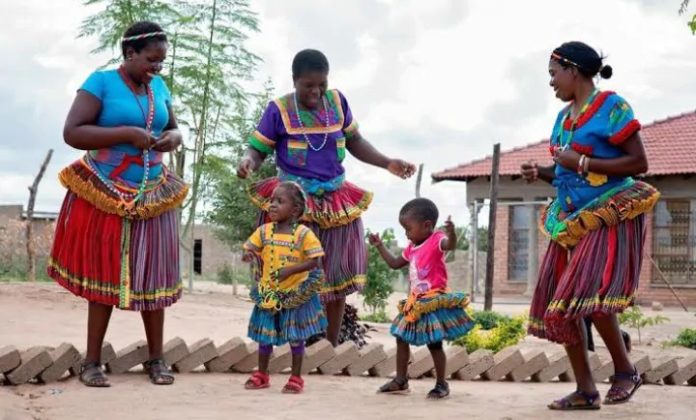
- Population: 3,300,000 (2019 population estimate)
- Language Spoken: Xitsonga
- Religion: African traditional religion, Christianity
- Person: Mutsonga
- People: Vatsonga
This is a Bantu ethnic group that has people in other countries including Mozambique and Zimbabwe. In South Africa, they are found predominantly in the Limpopo and Mpumalanga regions. These people have been traced back to Central and East Africa as far back as AD 200 and 500. Before they finally decided to settle in the South African region and SA, they have been moving in and out of the region for over a thousand years.
Swazi
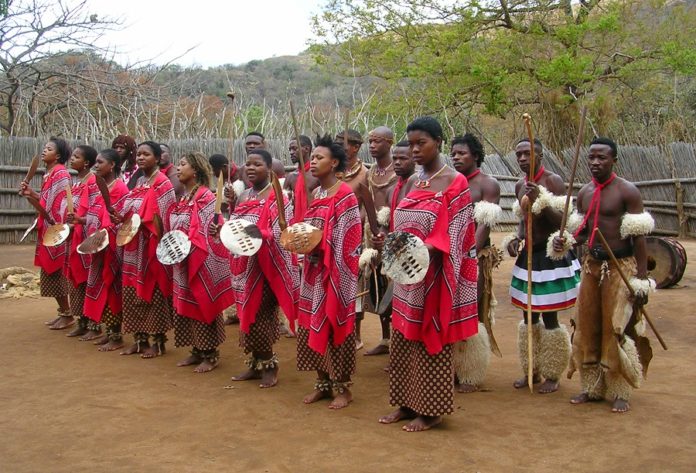
- Population: 1,297,046
- Language Spoken: siSwati
- Religion: Christianity and traditional Swazi religion
- Person: liSwati
- People: emaSwati
This may not be the biggest among other South African tribes, but it is well spread in the Southern African region with a large population in Eswatini and Mozambique among other parts of the world. All over the world, the tribe has a population of more than 2 million although South Africa alone has over 1.29 million. Also a Bantu people, the tribe which is mostly found in the Mpumalanga region of the country are from the Nguni clan and they migrated from East Africa to the places where they are found today.
White South Africans
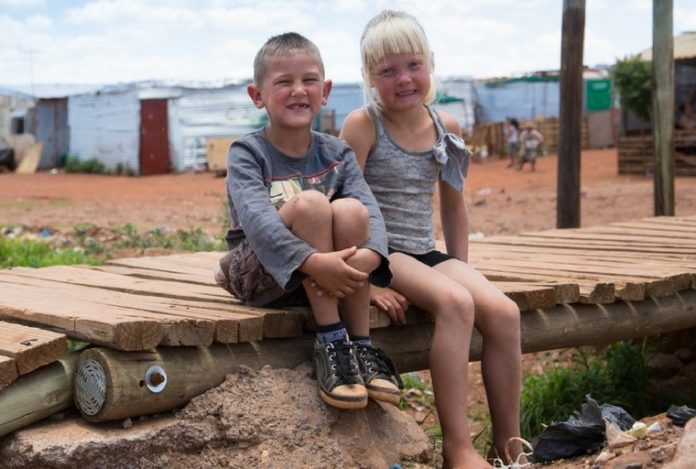
- Population: 4,652,006 (2019 estimate)
- Language Spoken: Afrikaans, English
- Religion: Christianity, Irreligious, Judaism
This group is formed by the white racial group who have been in the region since the mid 17th century. Because of this, they now have a South African cultural identity and are referred to as the Afrikaners. They started as settlements of Dutch colonialists before they were joined by others including Germans, French, and other Europeans. From a population of over 1.27 million in 1911, the White South Africans have grown to more than 4.56 million by 2019.
Coloured South Africans
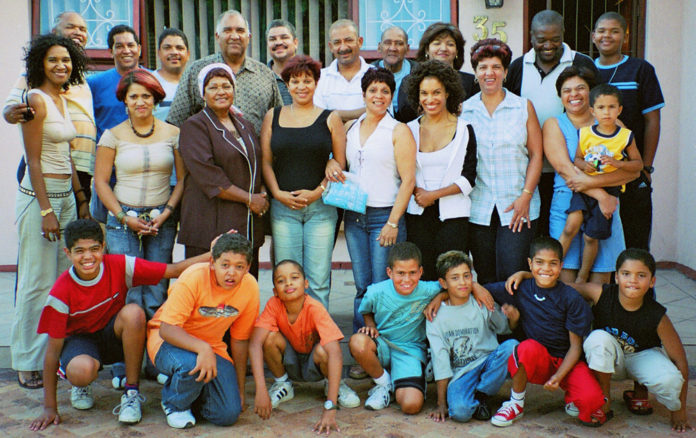
- Population: 5,176,750
- Language Spoken: Afrikaans, English, other South African languages
- Religion: Christianity and other religions
There is yet another group in South Africa is the Colored people, even though it cannot be referred to as an ethnic group or tribe. They are torn between the whites and the blacks. During the apartheid regime, the colored South Africans were considered lower than the whites but higher than the blacks in terms of privileges. The group started forming in the 18th- and 19th-century after Europeans and Africans started having unions. At the time, it was mostly between white men and slave women. The colored population in the country has continued to grow even through the apartheid period when it was considered illegal.
Asian South Africans
Mt India SA-2015/6 Razeen DADA pic.twitter.com/tpCAJswIV9
— Mr India SA (@MrIndiaSA) April 1, 2016
- Population: 1,274,867 (2011 Census)
- Language Spoken: South African English, other languages of South Africa, and their native countries’ languages
- Religion: Islam, Christianity, Hinduism, Buddhism, etc
Apart from the indigenous people of South Africa, there are also South Africans who are of Asian descent, popularly referred to as Asian South Africans. Based on the 2011 census, they have a population of over 1.27 million which is mostly made of Indians who have been in the country since the 19th century when they were brought in by the British to work in the Natal Colony. Apart from the Indians, there are also the Pakistanis and Chinese who are of a smaller population than the Indians but also consider the country as their home. Apart from the Indians, most others came to the country after the apartheid regime.
The Asian South Africans are mostly found in the KwaZulu-Natal and Gauteng, although they also spread to other parts of the country.
We recently published these related topics and we feel you might find them interesting:
- Xhosa Culture, Tribe and Language
- Tswana People, Culture and Language
- Lesotho Facts, People, Language and Culture
- Venda Culture, People and Language
- Ndebele Tribe, Culture and Language
- Pondo Tribe, Culture, Language and History
- Tsonga People, Culture and Language
- Swati Tribe, Culture and Language
- Lemba Poeple, Language, Culture and Tribe
